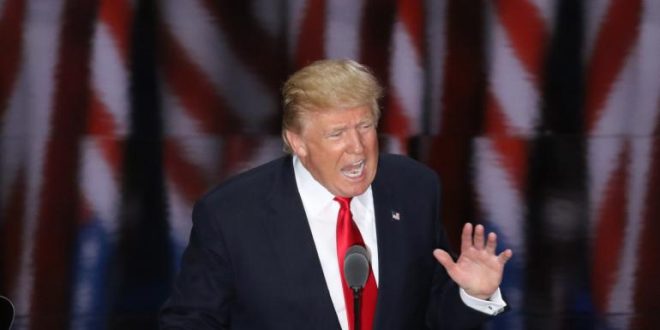Donald Trump has pledged to ‘immediately’ deport up to three million illegal immigrants as soon as he enters the White House, during his first television interview since winning the election.
When asked by Lesley Stahl whether he’s really going to build the wall, Trump simply replied “yes.” But he then clarified that “for certain areas,” he would build a fence instead of an uninterrupted wall along the entirety of the U.S./Mexico border.
“I’m very good at this—it’s called construction,” he said.
Trump also promised to immediately deport somewhere between 2 and 3 million undocumented immigrants, with a specific focus on “gang members” and “people with criminal records.”
“We have a lot of these people, probably two million, it could even be three million—we’re getting them out of our country, or we’re going to incarcerate them. But we’re getting them out of our country. They’re here illegally,” Trump said.
He then explained his plan for the approximately 8 million undocumented immigrants who are presumably not criminals, drug dealers, or gang members.
“After the border is secured and after everything gets normalized, we’re going to make a determination about the people that you’re talking about, who are terrific people,” Trump said, apparently forgetting his own characterization of Mexican immigrants and campaign promises to deport all 11 million undocumented immigrants living in the United States.
This may make it seem like Trump is “softening” his immigration policy—but he isn’t. Two or three million people is, of course, fewer than the 11 million Trump originally promised to deport. But that’s the number of immigrants Trump wants to deport immediately (or at least within his first 100 days), not over the course of his presidency.
According to the Center for American Progress’s Igor Volsky, there aren’t currently 2 million undocumented immigrants with criminal convictions in the United States—the statistic Trump is using includes non-citizen residents (i.e., “legal” immigrants) with criminal convictions.
On the campaign trail, Trump promised to put an end to President Obama’s “deadly non-enforcement policies” despite the fact that the Obama administration has deported more undocumented immigrants during its first six years than George W. Bush did during his two presidential terms.
Data from the Pew Research Center shows that President Obama deported approximately 2.4 million immigrants from fiscal 2009 to 2014—full data is not yet available for 2015 and 2016, but the total number of deportations under President Obama is expected to be somewhere around 3 million.
Of those 2.4 million immigrants, approximately 1,370,000 were non-criminals, compared to 1,058,000 who were criminals. However, since 2015, there has been a decline in deportations due to new enforcement policies that focus exclusively on undocumented immigrants who have been convicted of a crime, deemed a threat to public safety, or have recently crossed the border. In 2014, 51 percent of convicted criminals deported by ICE had been convicted of an aggravated felony; in 2015, the number had risen to 81 percent.
Additionally, border apprehensions have decreased and were at their lowest since 1971. According to Pew, more Mexicans are returning to Mexico than arriving in the United States.
If Trump wants to deport as many undocumented immigrants in his first 100 days as President Obama did over the course of eight years, the data suggests he’ll have to focus on more than just criminals, drug dealers, and gang members.
It’s also worth noting that Trump didn’t say he would immediately deport all of these immigrants—he said he’d deport or incarcerate them. The Department of Homeland Security, which holds immigration detainees in private prisons, announced earlier this year that it would reexamine their use of private prison companies.
Private prisons currently house 73 percent of immigration detainees, and their stocks have soared since Trump’s win.
Trump is currently considering Texas Representative Michael McCaul, the chairman of the House Homeland Security Committee; Alabama Senator Jeff Sessions, a leading opponent of the 2007 and 2013 amnesty bills; and Joe Arpaio, the Arizona sheriff who was charged with contempt of court in October for allegedly defying a judge’s orders to stop discriminatory policing practices against Latinos for the head of the Homeland Security Department.
Agencies/Canadajournal
 Canada Journal – News of the World Articles and videos to bring you the biggest Canadian news stories from across the country every day
Canada Journal – News of the World Articles and videos to bring you the biggest Canadian news stories from across the country every day



